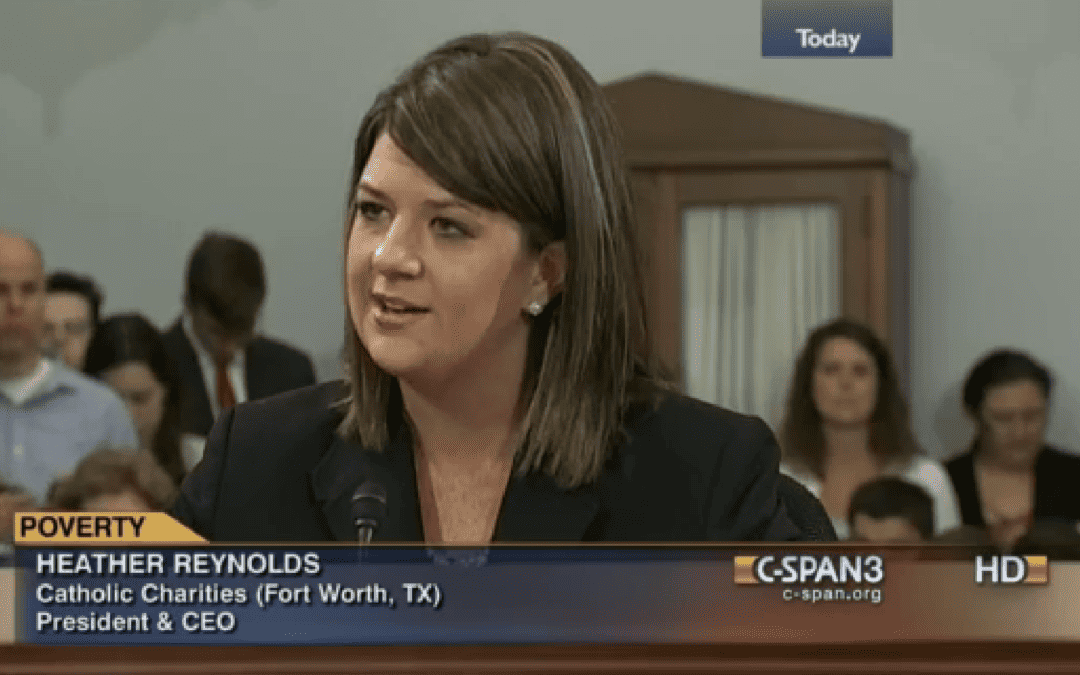An Open Letter to Paul Ryan from a Non-Profit in Fort Worth, Texas
The last time I saw you, I was behind a podium testifying about welfare reform in front of the House Budget Committee, pouring my heart and my intellect out in a way that I hoped would change your worldview on poverty. As the chief executive of Catholic Charities Fort Worth for more than 10 years, I work fiercely to end poverty.
When I read the headlines that “Paul Ryan says he was wrong about poverty,” it turned everything I knew about politics upside down. Speaker Ryan, you described what I know about the poor. I can hold strong to my business mindset all while carrying out my moral Catholic responsibility of taking care of the least among us. This flexibility, this nimbleness of thought, this grand compassion and understanding is the linchpin needed to reframe how the nation views those in poverty.
Allow me to explain.
You spoke of learning about the root causes of poverty. This is important because the federal definition of poverty is irrelevant, and it has not been updated since 1964.
Where I work, being out of poverty means earning a consistent wage to sustain your family, having at least three months of savings in the bank, and living independent of government subsidies. Unfortunately, many of the people that we serve are the working poor, those who appear to be holding it together, when, in reality, they are one car breakdown, one medical crisis, or a death in the family away from losing everything.
You saw the reality of the “takers.” As you noted, every single mom is not in poverty by choice, and we meet many of them coming through our doors. Kristina is a single mom we’re helping to earn a degree so she is able to secure a living-wage job. But to survive, to feed her family today, she needs government assistance as we help her transition. Part of this process is Kristina saving money so she is ready to handle the life emergencies that happen, without backsliding on her overall financial goals. Kristina has saved nearly $10,000 that she hides in the back of her closet instead of a more secure savings account. Why? Because putting the money in the bank means it will be recorded as an asset, and she would lose her benefits. She would be pushed back into the cycle of poverty within a couple of months. She isn’t gaming the system. She is a victim of a system that requires her to stay in poverty by penalizing her for building savings that are crucial for her to permanently escape poverty.
You acknowledged that most people do not want to be dependent on benefits. The fact is that the current federal system forces them to rely on benefits. The federal system is designed in such a way that people receive services for each of their needs independently from the other problems they have. Mr. Speaker, as you know it requires people to follow prescribed programs that may not meet their needs or help them make any progress.
By failing to customize benefits to individual needs, we rob people of the right to be the authority on their own lives, to manage their own situations, and to fully participate in the process of achieving their highest potential. We force our poor to stay poor by our creation of a patchwork of 92 federal anti-poverty programs, each with their own complex criteria and built-in disincentives that keep people trapped in a cycle of dependency. In short, what exists now is never going to end poverty, and the 46.5 million “takers” are forced to keep “taking.”
I firmly believe that government-run poverty programs are not the answer. The answer is to allow the right non-profits to tailor help based on needs. Government’s most useful role is in directing resources our way, to non-profits with proven success, to provide the services that we know work to get people out of poverty for good.
As a businesswoman running a $30 million agency, I would never simply add more resources to an already well-funded, yet failing service. I know that individualized, holistic case management is the critical element in moving someone from a place of depending on government or charity handouts to self-sufficiency. A holistic approach pairs individual needs with the appropriate service providers. This model has abled Catholic Charities Fort Worth to transform help from a disarray of solutions to a coordinated plan that helps individuals and families to the best possible outcome: Getting out of poverty, forever.
Thank you, Speaker Ryan, for showing us in an honest, uncalculated way, what it means to be someone in government with integrity, humility, and authentic leadership. Thank you for listening and learning. I hope your newfound understanding of poverty can be telegraphed to every elected official and every administrator in Washington.

